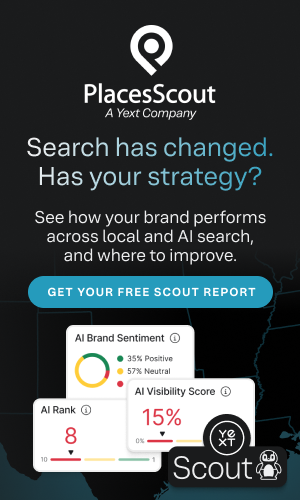- Joined
- Jan 4, 2013
- Messages
- 341
- Reaction score
- 125
Re: Are the "second tier" local directories significant? Where's the traffic data?
Austin Lund asked about vertical citations and here is my response + examples:
Vertical meaning dentistry, or legal, or restaurants for example.
Dentistry: Health Grades, Doctor Oogle, DemandForce
Legal: Avvo, Lawyers.com, findlaw
Restaurants: Zagat, OpenTable, Zamato, TripAdvisor
I like to do a search for the top 10 local queries (dentist, cosmetic dentist, dental implants, emergency dental etc) with search settings to the city of the client. Then see which industry/vertical specific directories show in the top 2 pages. Those citations are most important. Then repeat the process adding the geo modifier to those same service queries.
I would also pay attention to any local sites on the first couple pages. For example "fine dining austin" or "restaurants austin" show me the following vertical sites:
www.zomato.com
www.restauranteur.com
www.tripadvisor.com
www.foodandwine.com
www.opentable.com
https://www.zagat.com
And the following geo/city sites:
www.austin360.com
foodieisthenewforty.blogspot.com
www.austinchronicle.com
www.texasmonthly.com
austin.eater.com
www.congressaustin.com
www.austintexas.org
No Mojopages/Localstack to be found. If it's not relevant to Google's results for these queries. Your wasting time. Time that should be spent on those listings above. How? Well that's another topic but I'm chasing citations, links, ads, banners all of the above on those sites and leaving the top 100 citations for my competitors. ; )
Go to whois and run a search on the domain. It will show you where it is registered. The web developer will usually have that info. Sometimes the business owner will.
Sent from my SM-G900V using Tapatalk
Austin Lund asked about vertical citations and here is my response + examples:
Vertical meaning dentistry, or legal, or restaurants for example.
Dentistry: Health Grades, Doctor Oogle, DemandForce
Legal: Avvo, Lawyers.com, findlaw
Restaurants: Zagat, OpenTable, Zamato, TripAdvisor
I like to do a search for the top 10 local queries (dentist, cosmetic dentist, dental implants, emergency dental etc) with search settings to the city of the client. Then see which industry/vertical specific directories show in the top 2 pages. Those citations are most important. Then repeat the process adding the geo modifier to those same service queries.
I would also pay attention to any local sites on the first couple pages. For example "fine dining austin" or "restaurants austin" show me the following vertical sites:
www.zomato.com
www.restauranteur.com
www.tripadvisor.com
www.foodandwine.com
www.opentable.com
https://www.zagat.com
And the following geo/city sites:
www.austin360.com
foodieisthenewforty.blogspot.com
www.austinchronicle.com
www.texasmonthly.com
austin.eater.com
www.congressaustin.com
www.austintexas.org
No Mojopages/Localstack to be found. If it's not relevant to Google's results for these queries. Your wasting time. Time that should be spent on those listings above. How? Well that's another topic but I'm chasing citations, links, ads, banners all of the above on those sites and leaving the top 100 citations for my competitors. ; )
Go to whois and run a search on the domain. It will show you where it is registered. The web developer will usually have that info. Sometimes the business owner will.
Sent from my SM-G900V using Tapatalk




